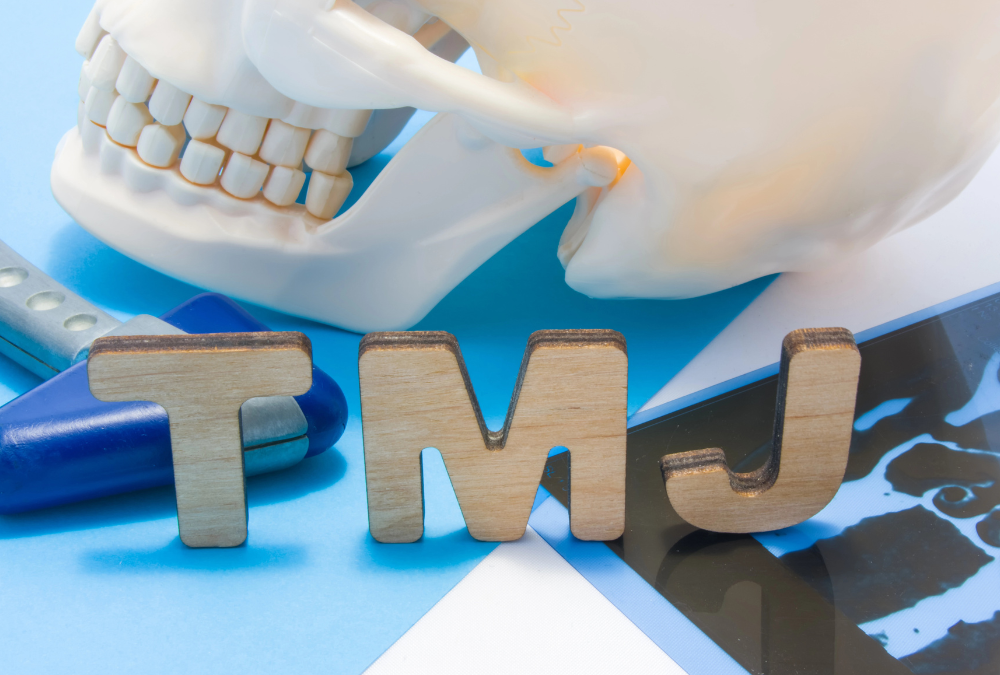The temporomandibular joint (TMJ) is one of the most complex and frequently used joints in the body, connecting your jawbone to your skull. TMJ disorders can cause pain and discomfort in the jaw, face, and even the neck and shoulders. While some TMJ pain can be managed with home remedies or basic dental care, there are times when it’s crucial to see an ENT doctor in Costa Mesa.
What is TMJ Pain?
TMJ pain arises from problems with the jaw joint and the muscles that control jaw movement. This condition is known as temporomandibular joint disorder (TMD) or TMJ disorder. Common symptoms include:
Jaw Pain: Pain or tenderness in the jaw, which can be temporary or chronic.
Difficulty Chewing: Discomfort while chewing or biting.
Clicking or Popping: Noises when opening or closing the mouth.
Ear Pain: Pain in and around the ears, sometimes accompanied by ringing (tinnitus).
Headaches: Frequent headaches or migraines.
Lockjaw: Difficulty opening or closing the mouth.
See an ENT doctor in Mesa for TMJ pain to receive specialized care, accurate diagnosis, and effective treatment options, ensuring relief and improved jaw function.
Causes of TMJ Pain
TMJ dysfunction typically occurs when there are problems with the jaw joint and surrounding muscles. These issues lead to pain, discomfort, and difficulties in jaw movement, highlighting the importance of seeing an ENT doctor in Mesa to address the underlying causes.
TMJ pain can be caused by various factors, including:
Injury: Trauma to the jaw or head.
Arthritis: Degenerative or inflammatory arthritis in the TMJ.
Grinding or Clenching: Habitual grinding (bruxism) or clenching of teeth.
Stress: Emotional stress can cause muscle tension and exacerbate TMJ pain.
Misalignment: Misalignment of the teeth or jaw.
When to Try Home Remedies
While waiting for your ENT appointment, you may benefit from the following home remedies and over-the-counter treatments for mild TMJ pain.
Apply Heat or Cold: Use a warm compress to relax muscles or an ice pack to reduce inflammation.
Over-the-Counter Pain Relievers: Medications like ibuprofen or acetaminophen can help alleviate pain.
Soft Diet: Eating soft foods can minimize stress on the jaw.
Jaw Exercises: Gentle stretching and strengthening exercises can improve jaw mobility.
Stress Management: Techniques like meditation, yoga, or deep breathing can reduce stress-related muscle tension.
When to See an ENT Doctor in Mesa Costa
While many cases of TMJ pain can be managed with basic care, certain symptoms and situations warrant a visit to an ENT doctor near me:
1. Persistent or Severe Pain
If your TMJ pain is persistent, severe, or worsening despite home treatment, it’s time to see an ENT doctor. Persistent pain can indicate a more serious underlying issue that requires professional evaluation and treatment.
2. Difficulty Opening or Closing Your Mouth
If you experience difficulty opening or closing your mouth, this could be a sign of a more severe TMJ disorder. Lockjaw or limited range of motion can interfere with eating, speaking, and daily activities, necessitating specialist care.
3. Unusual Sounds
While occasional clicking or popping sounds may be normal, frequent or painful noises when moving your jaw may indicate joint misalignment or damage. An ENT can determine the cause and recommend appropriate treatment.
4. Ear Pain and Hearing Issues
TMJ disorders can cause significant ear pain, tinnitus, or even hearing loss. If you experience these symptoms, seeing an ENT doctor in Costa Mesa is crucial. They specialize in ear-related issues and can provide targeted treatment to relieve your discomfort.
5. Headaches and Migraines
Frequent headaches or migraines associated with TMJ pain should not be ignored. An ENT can determine if your TMJ disorder is contributing to your headaches and offer treatments to alleviate both the jaw and head pain.
6. Previous Injury or Trauma
If your TMJ pain follows a recent injury or trauma to the jaw or head, it’s important to see an ENT. Trauma can cause significant damage to the TMJ, requiring specialized care to prevent long-term complications.
What to Expect During Your ENT Visit

Medical History: Discuss your symptoms, medical history, and any recent injuries or stressors.
Physical Examination: Checking the jaw joint and muscles for tenderness, pain, or unusual noises during movement.
Imaging Tests: X-rays, CT scans, or MRIs to get a detailed view of the jaw joint and surrounding structures.
Treatment Options
Depending on the severity and cause of your TMJ disorder, an ENT may recommend various treatments, including:
1. Medications
Pain Relievers: Stronger prescription pain medications for severe pain.
Muscle Relaxants: To reduce muscle tension and spasms.
Anti-inflammatory Drugs: To reduce inflammation in the jaw joint.
2. Therapies
Physical Therapy: Exercises to strengthen jaw muscles and improve mobility.
Cognitive Behavioral Therapy (CBT): To manage stress and reduce behaviors that exacerbate TMJ pain.
Occlusal Appliances: Custom-fitted mouthguards to prevent grinding and clenching.
3. Injections
Corticosteroid Injections: To reduce inflammation and pain in the TMJ.
Botox Injections: To relax jaw muscles and reduce tension.
4. Surgery
In severe cases, when other treatments are ineffective, surgery may be necessary. Surgical options include:
Arthrocentesis: A minimally invasive procedure to remove debris and fluid from the joint.
Arthroscopy: Using a small camera to diagnose and treat joint issues.
Open-Joint Surgery: For more severe cases, the joint must be repaired or replaced.
Prevention and Long-Term Management
After receiving treatment, it’s important to follow preventive measures and long-term management strategies to prevent the recurrence of TMJ pain:
Practice Good Posture: Avoid habits that strain the jaw, like resting your chin on your hand.
Use a Mouthguard: If you grind your teeth, use a night guard to protect your teeth and jaw.
Manage Stress: Regular stress management techniques can prevent muscle tension and TMJ pain.
Stay Hydrated and Eat a Balanced Diet: Good nutrition supports overall health, including joint health.
Conclusion
TMJ pain can range from a minor inconvenience to a debilitating condition. Recognizing when to see an ENT doctor in Costa Mesa for TMJ pain is crucial for effective treatment and relief. Persistent or severe pain, difficulty moving your jaw, unusual sounds, ear pain, frequent headaches, and pain following an injury are all signs that professional care is needed.
Contact Orange Coast ENT Head and Neck Surgery to schedule an appointment for TMJ treatment to alleviate your pain and restore your ear, neck, and throat health.

